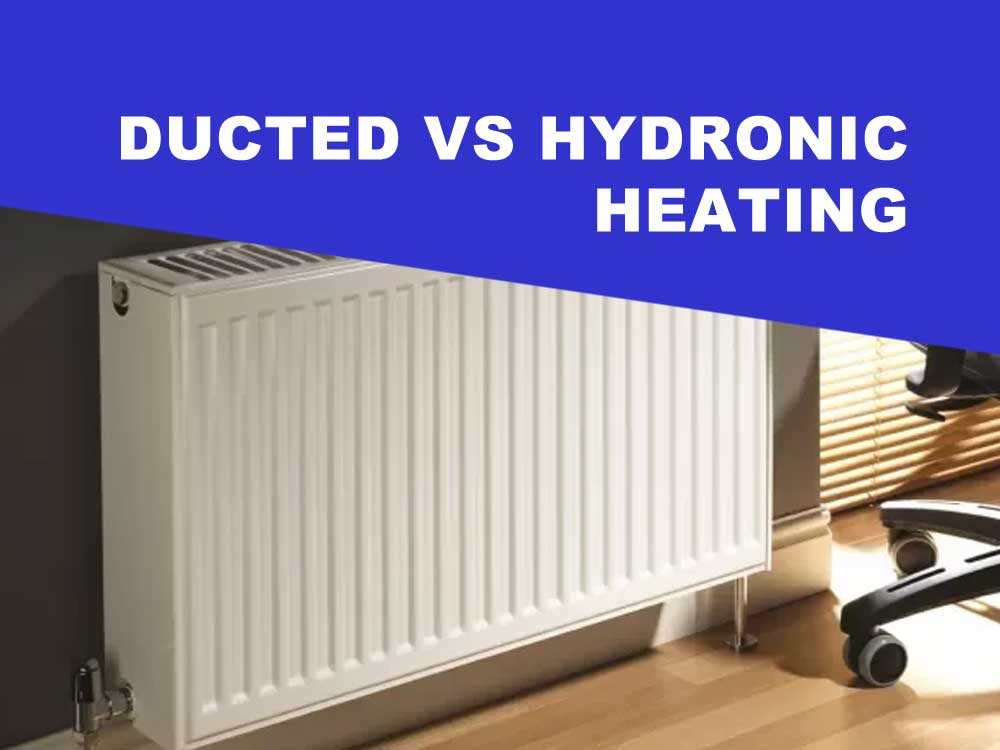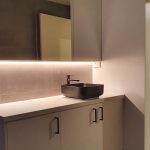Cozy homes and freezing winter nights, Welcome to Melbourne!
The need of installing an energy-efficient heating system during winter in Melbourne is unquestionable. You can’t “enjoy” winter in Melbourne without having a good heating system installed to keep your house warm and comfortable. Several options for heating systems are now out there in the market. However, we know that only one or a few of them can get the job done rightly only if chosen wisely. The most popular systems these days are the two, namely hydronic heating and ducted heating systems.
Both of them are highly preferred these days by Melbourne’s residents. Each has its advantages and disadvantages to help you decide which one to choose or not. Even sometimes, a system that seems a perfect solution for your needs may not be suitable enough to meet someone else’s needs or budget. Hence, many factors may influence your process of choosing the perfect match for your needs. Going through this article you will learn about how these two systems operate, what are their pros and cons, and which one is better than the other and why.
Ducted Heating System
What Is It?
A ducted heating system which is also known as a Gas Ducted heating system uses air as a medium to transfer heat throughout your home.
How Does It Work?
This Ducted heating system comprises the following three main components:
- External furnace
- Heat exchanger
- Insulated network of ducts
- Boiler – heat the liquid medium
- Thermostat –control temperature
- Pump or piping – transfer the hot water
Here in the ducted heating system, the heat source that is an external furnace needs energy to run either from natural gas or LPG. This furnace then initiates the process by pushing cool air of the room by fans into the system where it passes over a heat exchanger. This heat exchanger operates to heat the cool air drawn from the environment. Next to this process, the hot air sends to the network of ducts by heat exchanger for distribution. A series of ducts are installed generally in the floor or walls. They are supposed to transport the hot air from heat after heating throughout the house and keep it warm.
This system is also known as a central heating unit and can be installed anywhere like on the roof, outside, or under the floor.
What are Ducted Heating System benefits?
Central, Efficient Heating
Since our first choice is a system that can offer us an entire home heating solution, the ducted heating system is therefore preferred in most cases. As it is known as a central heating system, it can keep your entire home warm by generating hot air centrally and distributing it all around the house.
The flexibility of Setting Heating Zones
Which rooms you want to keep warm and which don’t is now totally in your hands. You can opt for the system to operate and distribute heat through rooms of your choice while keeping it off for other rooms.
Instant Warmth
A ducted heating system is known for turning your home from cold to warm at a fast speed. Therefore, it provides you instant results and makes it speedy and convenient to warm up the place.
Hydronic Heating System
What Is It?
Since hydro means water, a hydronic heating system uses water as a medium to transfer heat throughout your home. Instead of blowing hot air like many other heating solutions, this system utilizes liquid as a heat-transfer medium.
How Does It Work?
A hydronic heating system consists of the three major components:
The boiler acts as a source of heat where water comes from a circulating system and heated to a certain temperature. The temperature is controlled via programmable thermostat that is present alongside the boiler. It is up to your choice to keep the temperature to your desired limit. After heating, this hot water comes to the pump or coils of pipe for circulation. This network of pipes is usually installed in the floor or ceiling. This hot water when distributed by a network of pipes to panel radiators installed in each room, transfers the heat into the air surrounding your room, making it warmer. While in the case of pipes beneath the flooring, the whole surface area gets warmed with even distribution of heat. Once heated, this water returns to the circulating system and can be reused for the next cycle.
What are Hydronic Heating System benefits?
High Energy-efficiency
In a hydronic heating system, water is involved as a transfer medium for heat which has higher thermal conductivity than air. Moreover, it evenly distributes heat all-around your house.This makes the system highly energy-efficient and keeps the environment warm throughout the available space.
Reduce Noise Pollution
Unlike ducted systems, hydronic transfers heat using radiators. Hence, it does not cause noise pollution and even seems a better alternative as a quieter heating system.
Keeps Environment Clean
No such mechanism like the movement of forced air through vents occurs in this heating system. Therefore, it does not allow pollutants or allergens such as dust particles or microbes to enter the room, and keep your surrounding air clean.
Which One Is Better and Why?
Now, you have gone through sufficient information about each system, we will see which one is the best to install. The majority think that a hydronic heating system is a better option for several aspects of investing.
Let’s see what are they!
It’s Budget-friendly
On average, installing a hydronic heating system saves you up to 20-25 percent on the installation cost and long-term running expenses against a ducted heating system.
Good For Health
The hydronic system provides heat the same way nature does. Like a ducted system, it does not keep forcing air contaminated with allergens and pathogens. Therefore, it prevents any breathing issues or respiratory conditions to occur.
Safe To Install
The system comes with sealed pipes and there is no risk of any harm if you accidentally touch the radiator. Therefore, a hydronic system is considered quite safe in comparison to other heating solutions.
Eco-friendly
Except for water and natural gas, no fuelling is required to run a hydronic system.
Done, now it is your turn to decide the heating system for your renovation.












